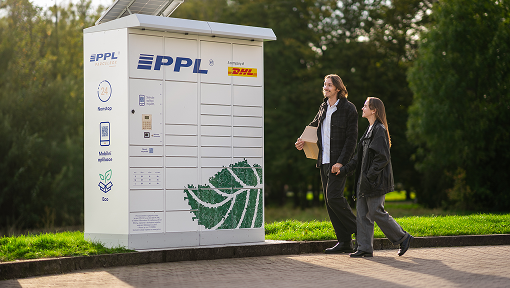PPL has just taken delivery of its first purely electric eSprinters from Mercedes-Benz. As one
of the strongest players on the parcel market, PPL has big plans for electromobility. The ceremony was attended by PPL CEO Petr Horák, Chief Operating Officer David Voznička, PPL partner carrier Martin Kulhánek and Batiste Pascalin, Head of Sales and Marketing at Mercedes-Benz Vans Central Eastern Europe.
"We are very pleased that our electric eSprinter can help PPL reduce operating costs and the carbon footprint of its fleet. In recent months there has been a strong increase in demand for electrical supplies in many sectors. However, the CEP (Courier Express Parcel) segment is the absolute leader in the transition to local emission-free operation. Mercedes-Benz vans are ready to fully support this change, not least through their range of state-of-the-art products and services. We also provide our customers who are planning to electrify their fleets with expert advice tailored to their requirements," explains Batiste Pascalin, Head of Sales and Marketing at Mercedes-Benz Vans Central Eastern Europe.
The strategies and visions of both companies coincide. "The topic of electromobility and long-term activities designed to reduce emissions are key to our future and are therefore an important part of our corporate strategy. We are developing programmes with a focus on green logistics covering all key areas of emissions generation - from autonomous buildings, renewable energy and truck transport to the greener delivery of parcels and the elimination of paper printing in our processes," says Petr Horák, CEO of PPL s. r. o., which delivers tens of millions of parcels a year not only across the Czech Republic, but also abroad And the eSprinter for PPL is perfectly tuned for the company's needs, especially in terms of battery capacity, weight and recharge time. This makes it the ideal companion on the road to greener delivery.

